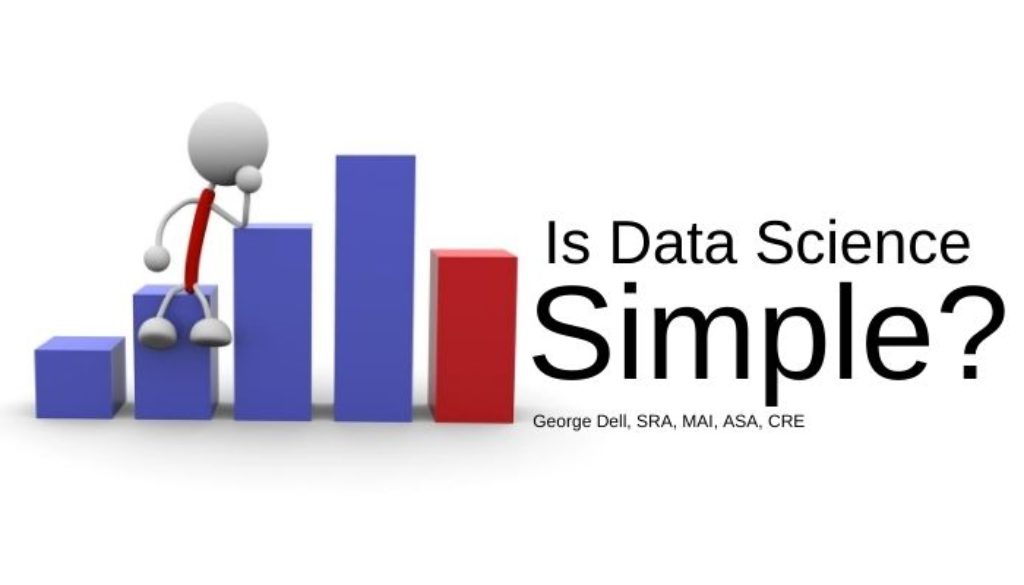“Ya gotta make this stuff simple” I am told . . .
Data Science: Get the right data, clean the data, apply predictives, get results.
Property analytics: Get the right data, clean it, apply predictives, get results.
So let’s expand this:
Step 1. Identify the problem, download all the data you will ever need.
Step 2. Reduce to the ideal competitive market segment (CMS)©.
Step 3. View markets using graphs and summary numbers.
Step 4. Calculate predictives by three algorithmic tools.
Step 5. Deliver reproducible and risk-scored results.
It can’t be that easy. Well, yes, it’s new, so it does challenge the brain and embedded habits. As one keynote speaker at the national AI conference said – “unlearning” is as important as learning. (2016, Jack Uldrich). Old, embedded, unconscious automatic ways of doing things trump new ways. It takes effort.
So why this fear of data science? Is it just more statistics made more difficult? It’s not, but is actually simpler than what is currently taught in “advanced quantitative methods” courses offered to appraisers. Simple.
When you have all, or most all of the data – you don’t need to take samples. No samples of any kind. No random samples, no picking comps, no ‘supporting’ your opinion.
But there is emphasis on objective methods to identify the right data. Emphasis is on cleaning, verifying, and shaping the data. It provides better fuel for the predictive part – which follows. We use market information to measure and explain markets. What’s out — is Trust me, I know a good comp when I see a good comp. What’s in — is actual measurable market parameters. Market measures based on measured market information.
Does this require judgment? Yes. Loudly. Yes.
And the judgment is different from what was needed in the 1970s. The skills are not about picking comps and making adjustments. The skills are about refined judgment, better research methods and data management.
[themify_quote]To that end, appraisers need new skills, refined judgment, and improved research techniques to gather and manage information efficiently in the rapidly evolving data universe.
The Appraisal of Real Estate, 2013, 14th ed. p. 95[/themify_quote]
What we do in EBV (Evidence Based Valuation)© is exactly what the doctor ordered in this most important text in the appraisal profession. It’s what EBA (Evidence Based Appraisal)© does!
